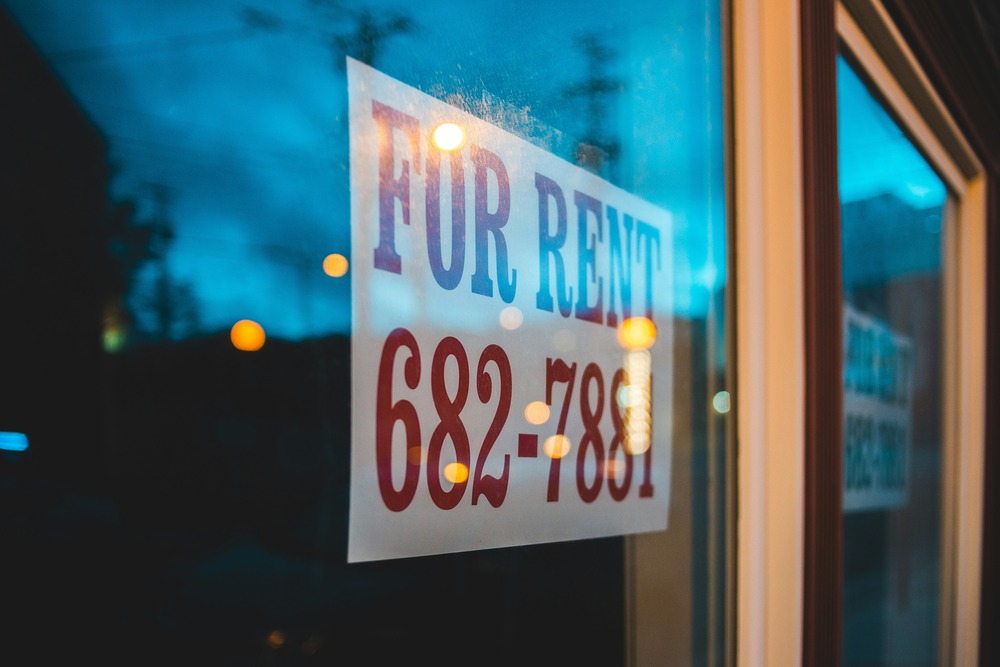California Squatters Rights – Everything you need to know!

California Squatters Rights – Everything you need to know!
Squatting is when someone occupies an uninhabited or abandoned residential property that they do not own, rent, or otherwise have permission to live in. Squatting is illegal in California, but squatters still have certain rights under California law. Here is what you need to know about squatter’s rights in California.
With the housing crisis ongoing, more and more homeless people are resorting to unlawful squatting in abandoned rental properties. It’s not unusual to find squatters taking up residence in foreclosed homes, buildings left vacant following evictions, or rentals where tenants have moved out but the owner fails to monitor the property. While sympathetic to their plight, property owners face headaches and financial burdens when their vacant rentals are illegally occupied.
Many rental properties and homeowners don’t realize the scope of the squatter problem until they find their vacant unit ransacked and damaged or unexpectedly occupied by strangers. To avoid the adverse possession claims squatters can make after living there undetected for years, owners must take preventative measures. Frequent inspections, alarm systems, security cameras, and fair housing-compliant screening processes are some of the tools owners utilize.

In California, it is illegal for someone to squat or trespass on a vacant property without the owner’s permission. A vacant property refers to any uninhabited residential building or land that is unused and unoccupied. Even if a property is vacant, squatters have no legal right to occupy the premises without authorization from the owner. Property owners have the right to take legal action to evict or remove squatters from any vacant building or land that they own. Squatters are trespassing if they move into a vacant property without the owner’s consent.
Squatting vs. Trespassing in California
Squatting and trespassing are different under California law. Trespassing is when someone enters the property without permission. Squatting involves occupying and living on the property without permission. Both are illegal, but squatting involves residing on the property while trespassing does not.
Squatting Laws in California
California has laws in place to protect property from squatters. These laws allow a property owner to quickly evict or remove squatters from their land or buildings. Squatters don’t have any legal right to occupy an uninhabited property without permission from the owner.

How Do Squatters Claim Adverse Possession in California?
In California, a squatter can try to make an “adverse possession” claim to gain legal ownership of the property they are occupying. This requires meeting specific continuous possession requirements over a 5-year period:
- Hostile possession – occupying the property without permission
- Actual possession – physically residing on the property
- Exclusive possession – excluding all others from the property
- Continuous possession – residing on the property for the entire 5-year period
- Open and notorious possession – using the property openly without hiding occupancy
If these requirements are met, the squatter can file a lawsuit to claim legal ownership of the property.
Isn’t Squatting the Same Thing as Trespassing?
Trespassing and squatting are not the same thing legally. With trespassing, someone enters the property without permission. Squatting involves taking up residence without permission. So squatting includes trespassing along with unlawfully living on the property.
Evicting Squatters in California
Property owners have the right to evict squatters from their buildings or land in California. This requires giving the squatters proper notice first. For unlawful detainer, a 3-day written notice to vacate must be given to the squatters. This gives them time to leave before the eviction process can proceed.
Hostile Possession
One requirement squatters must meet to make an adverse possession claim is a hostile possession. This means the squatter occupies the property without permission from the legal owner. They don’t have a rental agreement or any type of lease or agreement giving them permission to live there.
Sometimes tenants will remain on a property after their lease expires and refuse to leave. These are known as holdover tenants. Even though they were initially given permission to occupy the property, they became illegal squatters by outstaying their lease. The same eviction process for squatters applies to remove holdover tenants.
What are Squatter’s Rights in California? Here’s a Guide
Squatters don’t have any rights allowing them to legally occupy an unused residential building or land in California. Property owners can quickly evict squatters with proper notice.
Adverse possession claims allow squatters to gain legal ownership of property in California. But it requires meeting all the specific elements – hostile, actual, exclusive, and continuous possession for 5 full years. Additionally, the squatter must pay property taxes during those 5 years to make a viable claim.
Sometimes property owners will allow someone to use or occupy the property with an oral “at-will” agreement. This creates a tenant “at will” arrangement without a formal lease. These tenants at will aren’t squatters with adverse possession rights since their occupancy is permitted.

How to Remove a Squatter in California
To remove a squatter in California, property owners should:
- Give proper written notice to vacate – Wait out the notice period
- File an unlawful detainer lawsuit if they don’t leave
- Get a court order for their removal
- Use the sheriff’s office to physically remove them if necessary
Trying to remove squatters without this legal process can risk civil and criminal consequences.

Color of Title
What Does “Color of Title” Mean When It Comes to Squatters’ Rights? Color of the title refers to an invalid legal claim to own a property. For example, the squatter might have a deed that appears valid but is actually fraudulent. Color of title alone doesn’t give squatters any legal rights. They must meet all the specific adverse possession requirements as well.
Actual Possession
In addition to hostile possession, squatters must establish actual possession to claim adverse possession. This means physically occupying and residing on the property as an owner would. Occasional visits or storing belongings won’t qualify. The squatter must live on the property continuously.
So, What Rights Do Squatters in California Have?
Squatters don’t have any legal rights to trespass and occupy an unused property without the owner’s permission. Property owners can quickly have squatters evicted with proper notice. However, if they meet the requirements for adverse possession, squatters can potentially gain legal ownership after 5 continuous years of residency.
Hostile Claim
Another requirement for adverse possession in California is that the squatter’s occupation must be hostile. This doesn’t necessarily mean aggressive. Hostile simply means the squatter is occupying the property without permission from the legal owner.
Exclusive Possession
Adverse possession requires the squatter to have exclusive possession of the property. They cannot share possession with the owner, other squatters, tenants, or anyone else during the 5-year period. The property must be occupied only by the squatter.
Do Squatters Need to Pay Property Taxes as a Requirement for Filing an Adverse Possession Claim?
Yes, in California squatters must pay all the taxes on the property for the entire 5-year period to make a viable claim. Not paying property taxes can defeat their claim.
In addition to exclusive possession, the squatter must maintain continuous possession of the property for the full 5 years. This means residing on the property without any gaps. If the squatter leaves for a period of time, it can disrupt the continuity and ruin their adverse possession claim.
How to Evict A Squatter in California
Most states require property owners to provide squatters with a notice to vacate before filing for eviction. The amount of time squatters are given depends on each state’s laws. For example, in California, property owners must provide a 3-day written notice to vacate. In Florida, it’s a 7-day notice. The notice provides a timeline for the squatters to leave the property before the owner can proceed with the eviction filing.
If the squatters don’t leave after proper notice is served, the property owner can file a lawsuit known as an unlawful detainer action. This legal process allows the owner to reclaim possession and have the squatters removed by law enforcement. The court will usually schedule a hearing and issue an eviction order if the owner can provide proof of ownership and show the squatters have no legal right to be there. Properly following the notice requirements and eviction process can allow owners to more quickly remove unwanted squatters from their property.
California Squatters Rights | Bottom Line
While squatters don’t have legal rights to occupy properties, they could gain ownership through an adverse possession claim if they meet all requirements. Property owners should take steps to monitor their properties and follow proper procedures to remove any squatters quickly.

How to Protect Your Property from Squatters
To protect your property from potential squatters in California:
- Inspect the property regularly
- Secure all entryways – lock windows, doors, fences, gates
- Post no trespassing signs
- Make the property appear occupied
- Have a property management company monitor it
- Address any code violations or unsafe conditions
How to Get Rid of Squatters in the State of California
Follow these general steps to remove squatters from your California property:
- Document the occupancy and gather evidence
- Give proper written notice to vacate
- Wait out the notice period then file an unlawful detainer suit
- Get a court order for the removal
- Coordinate with the sheriff to physically remove them
Never try to forcibly remove squatters yourself as this can have legal repercussions.
Tips for Protecting Yourself from Squatters in California
To help avoid squatters from taking up residence on your California property:
- Inspect the property regularly
- Make improvements to prevent easy entry
- Have a property manager monitor it
- Post no trespassing signs
- Address any code violations quickly
- Document everything for evidence
- Follow proper procedures to remove them
California Squatters Rights FAQ
1. What are Squatters Rights?
Squatters Rights, also known as adverse possession, refer to the legal principle that allows a person who occupies a property without the owner’s permission to potentially gain ownership of that property over time.
2. How do Squatters Rights work in California?
In California, Squatters Rights operate under specific conditions. A squatter must occupy the property continuously for at least 5 years, pay property taxes, and meet other requirements to potentially claim ownership.
3. What is the difference between a squatter and a trespasser?
While both occupy property without permission, a squatter typically lives on the property as if they were an owner, often for an extended period. A trespasser is usually a short-term occupant aware they have no right to be there. Squatters Rights can apply to squatters but not trespassers.
4. How long must someone squat to claim Squatters Rights in California?
In California, the required period for Squatters Rights is 5 years of continuous occupation.
5. What are the requirements for Squatters Rights in California?
To claim Squatters Rights in California, one must:
- Occupy the property continuously for 5 years
- Pay property taxes for those 5 years
- Occupy the property openly, notoriously, and without the owner’s permission
- Claim the property exclusively (not sharing with the true owner)
- Occupy the property continuously (no significant interruptions)
6. Can Squatters Rights override a property deed?
Yes, if all conditions for Squatters Rights are met and the claim is successful in court, it can override a property deed, transferring ownership to the squatter.
7. How can property owners protect themselves from Squatters Rights claims?
Property owners can protect themselves by:
- Regularly inspecting their property
- Securing all entry points
- Posting “No Trespassing” signs
- Paying property taxes on time
- Addressing squatter situations promptly through legal means
8. Are Squatters Rights the same as adverse possession?
Yes, Squatters Rights and adverse possession refer to the same legal concept. They are often used interchangeably.
9. Can someone claim Squatters Rights on government property in California?
Generally, no. Squatters Rights typically cannot be claimed on government-owned property in California.
10. How does paying property taxes affect Squatters Rights?
Paying property taxes is a crucial requirement for Squatters Rights in California. The squatter must pay taxes on the property for the entire 5-year period to potentially claim ownership.
11. What is “open and notorious” occupation in Squatters Rights?
“Open and notorious” occupation means the squatter is not hiding their presence on the property. They are living there as if they were the rightful owner, visible to neighbors and the community.
12. Can Squatters Rights be claimed on vacant land?
Yes, Squatters Rights can potentially be claimed on vacant land if all other requirements are met, including continuous occupation and payment of property taxes.
13. How do courts determine Squatters Rights cases?
Courts examine evidence of continuous occupation, tax payments, the nature of the occupation (open, notorious, exclusive), and any counter-evidence from the property owner. They ensure all legal requirements for Squatters Rights have been met.
14. Can a rental agreement nullify a Squatters Rights claim?
Yes, a valid rental agreement typically prevents a Squatters Rights claim because the occupant has the owner’s permission to be there, which contradicts the requirement of occupation without permission.
15. What happens if a squatter leaves the property before the 5-year period?
If a squatter leaves before the 5-year period is complete, they cannot claim Squatters Rights. The continuous occupation requirement would not be met.
16. Can multiple squatters claim Squatters Rights on the same property?
Generally, no. Squatters Rights require exclusive possession, meaning one party claims ownership to the exclusion of all others, including other squatters.
17. How do Squatters Rights interact with property inheritance?
If a property owner dies and the heirs are unaware of the property or fail to take possession, a squatter could potentially claim Squatters Rights if all requirements are met over the 5-year period.
18. Can improvements to the property strengthen a Squatters Rights claim?
While not a direct requirement, improvements to the property can strengthen a Squatters Rights claim by demonstrating the squatter’s treatment of the property as their own.
19. How quickly should property owners act to remove squatters?
Property owners should act as quickly as possible to remove squatters. The longer a squatter remains, the stronger their potential claim becomes. Prompt legal action is crucial.
20. Can Squatters Rights be claimed on a portion of a property?
Yes, in some cases, Squatters Rights can be claimed on a portion of a property, such as a section of land that’s been continuously occupied and maintained by the squatter for the required period.
21. How does the concept of Squatters Rights differ from easements?
While both Squatters Rights and easements involve using someone else’s property, they are distinct legal concepts. Squatters Rights can lead to full ownership of a property through adverse possession, while easements grant limited rights to use a property for a specific purpose (like a right of way) without conveying ownership.
22. Can Squatters Rights be interrupted by legal action?
Yes, if a property owner takes legal action against a squatter before the 5-year period required for Squatters Rights is complete, it can interrupt the adverse possession process. This is why it’s crucial for property owners to act quickly when they discover squatters.
23. How do Squatters Rights apply to commercial properties in California?
Squatters Rights can potentially apply to commercial properties in California, just as they do to residential properties. The same requirements must be met: 5 years of continuous, open, notorious, and exclusive possession, along with payment of property taxes. However, commercial properties may have additional complexities due to zoning laws and business regulations.
24. Can Squatters Rights be claimed if the squatter is paying utilities but not property taxes?
While paying utilities can be evidence of open and notorious possession, it’s not sufficient for a Squatters Rights claim in California. Payment of property taxes is a specific requirement for adverse possession in the state. Paying utilities alone, without paying property taxes, would not meet the legal criteria for Squatters Rights.
25. How do Squatters Rights interact with property liens or mortgages?
Squatters Rights can potentially override existing liens or mortgages on a property if all conditions for adverse possession are met. However, this is a complex legal situation. If a squatter successfully claims ownership through Squatters Rights, they may take the property subject to existing liens or mortgages, meaning they could become responsible for these debts. This aspect of Squatters Rights often requires careful legal analysis and can lead to complicated court cases.













